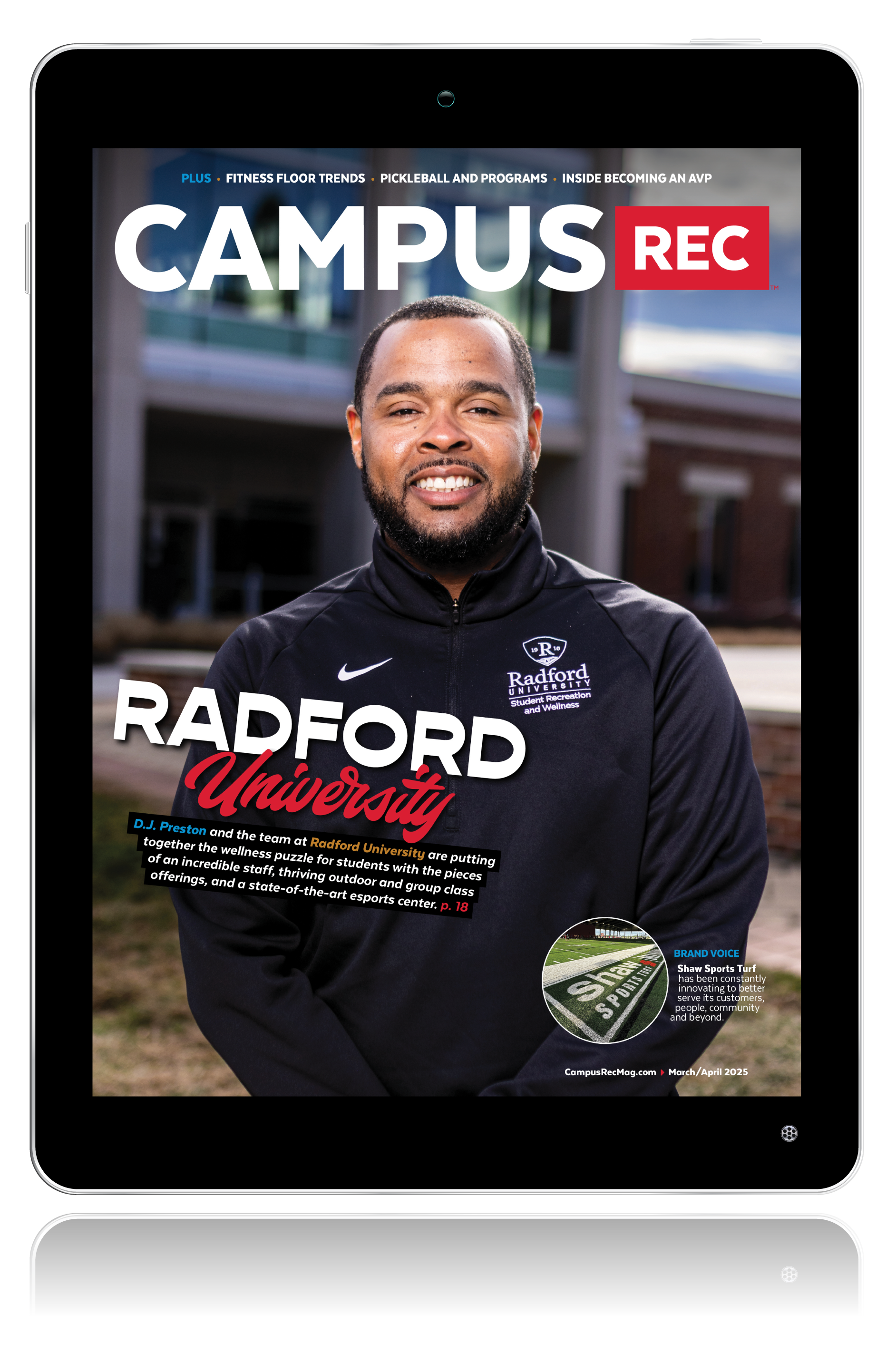AI is no longer a far-off technology we can keep putting off until later. It is actively disrupting industries and reshaping how we work, including in higher ed and campus recreation. The conversation is shifting from whether AI should be adopted to how institutions can integrate it thoughtfully and responsibly — and we should be joining in.
Notably, the California State University (CSU) system announced a groundbreaking public-private initiative in February, partnering with major tech companies such as Adobe, Google, AWS, IBM, Microsoft, and OpenAI to provide AI-powered learning, training and teaching tools to all 23 CSU campuses.
With more than 460,000 students and 63,000 faculty and staff gaining access to these resources, including ChatGPT, this initiative represents the beginning of a paradigm shift and puts a big spotlight on higher ed’s growing interest in AI adoption.
No matter the role or responsibilities, AI in campus rec has the potential to revolutionize our work and how it’s done. But it requires careful implementation. Campus rec leaders should act now to build AI literacy and begin upskilling full-time and student staff to ensure they remain competitive in an increasingly technology-driven world. It’s AI-forward or obsolete — that is the AI imperative.
Why Campus Rec Leaders Must Engage Now
AI is already shaping student experiences through a variety of platforms they use every day. As AI continues to integrate into work and daily life, campus rec has a unique opportunity to help students build AI literacy by incorporating it into operations and — by extension — their jobs and training. By doing so, recreation departments can ensure student workers gain valuable, real-world experience with tools they’ll likely use in their future careers.
Beyond student development, AI enhances operational efficiency. Managing facilities, programs, and engagement involves a steady flow of data, and AI can help analyze trends, predict demand and streamline administrative work. AI-driven insights can optimize scheduling, resource allocation, and participation tracking, allowing staff to shift their focus to high-impact work like fostering engagement and creating innovative programming.
On top of that, AI’s ability to personalize experiences and improve the quality of programming and member interactions can strengthen customer relationships, increasing participation and facility usage. AI-powered analytics supports these efforts with useful data that can predict trends, as well as help brainstorm, guide marketing strategies, and refine messaging to attract and retain members.
However, responsible AI adoption must be a priority. Leaders should ensure AI is implemented ethically, with transparency, fairness and privacy at the forefront — an AI Council is great for this. AI should complement human expertise and expression — not replace it.
When applied conscientiously, AI in campus rec can be a valuable tool to enhance what we do without losing the authenticity and humanity behind our work.
6 Considerations for Responsible AI Adoption
- AI is a tool — not a substitute — for human judgment. AI in campus rec can assist with tasks, but human oversight remains essential. Always critically evaluate AI-generated content and decisions to ensure they align with organizational goals and ethical principles.
- AI should complement — not replace — human expertise. The best outcomes result from AI supporting our work and decision-making rather than replacing it. Our expertise and experience are vital. That’s not likely to change, even as AI advances. Automation can be used to handle repetitive, data-driven, and predictive tasks, or even assist with quality improvements. However, people remain central to creativity, strategical and ethical considerations.
- AI is not always accurate. Verify and cross-check information. AI-generated data and outputs can sometimes be misleading or inaccurate. It can also hallucinate and generate completely fabricated information. No matter how confident it may sound, fact-checking and verifying information generated by AI is crucial to maintaining accuracy and reliability.
- Be mindful of bias and ethical risks. AI systems learn from data. If that data contains biases or prejudices, AI-driven outcomes may reflect those too. Always review outputs for harmful language, tone and innuendo to ensure fairness in AI-assisted decision-making and communications.
- Prioritize privacy and data security. AI tools rely on data, making it essential to handle information with privacy and security in mind. Always avoid inputting sensitive or proprietary data into AI systems and follow institutional policies to maintain security and confidentiality.
- Transparency and compliance matter. Understanding how AI reaches conclusions is key to ensuring accountability. Ask the AI system, “How was this outcome determined?” and stay informed about AI-related regulations and ethical standards. It’s also generally good practice to disclose when AI-generated creative outputs, like images, video or audio, are being used.
The AI imperative behooves us to build AI literacy and engage in discussions and action around AI adoption now. AI presents new opportunities for campus rec, but its adoption must be handled responsibly. By proactively engaging with AI and establishing ethical best practices, we can maximize AI’s potential while maintaining trust, integrity, inclusivity and human authenticity. Together, we can be an AI-forward industry.









